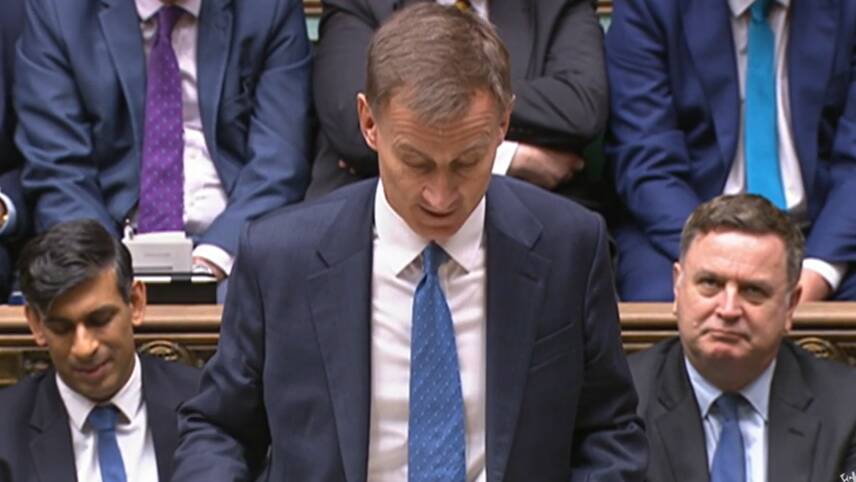Register for free and continue reading
Join our growing army of changemakers and get unlimited access to our premium content

The Chancellor has announced a total of 110 measures in a bid to help grow the economy. These measures are purportedly focused on a “not big government, not high spending, not high tax” approach.
The Autumn Budget includes measures to unlock an additional £20bn in business investment per year over the next decade to bridge the gap between the UK and the rest of the G7 nations.
This comes after the Institute for Public Policy Research (IPPR) recently revealed that the public investment commitments to low-carbon technologies in the UK are among the lowest in the G7 group.
It was anticipated that the Statement would provide with a comprehensive, long-term green industrial strategy to instil confidence among investors, expedite the growth of green industries and position the UK market as a frontrunner in the global race towards achieving net-zero emissions. This was not forthcoming.
Nevertheless, the Statement has sparked doubts among green leaders over its potential to effectively address the mounting challenges of the shifting global market and catalyse green finance at the necessary pace.
What was announced:
The Statement highlights that the UK has mobilised £198bn in public and private investments in low-carbon energy since 2010. It emphasises that the newly introduced “cross-economy measures” will further unlock investments in the years ahead.
An official response to the Winser review
The Government has published its full response to the Winser review and Connections Action Plan, which it claims will cut grid access times for larger projects by half, halve the time to build major grid upgrades and offer up to £10,000 off electricity bills over 10 years for those living closest to new transmission infrastructure.
According to the Government, these planning and grid reforms are estimated to accelerate approximately £90bn of additional business investment over the next decade.
A £4.5bn boost for manufacturing sectors
Another major announcement for businesses included the Chancellor’s focus on “strategic manufacturing”. During his speech, the Chancellor unveiled that manufacturers would be supported by more than £4.5bn in funding between 2025 and 2030. This had already been announced over the weekend.
As part of the £4.5bn funding, aerospace firms will be able to access £975m, while life sciences have been given £520m. In a welcome boost for the green economy, the Chancellor has ringfenced more than £960m for new green industries.
“Biggest tax cut in modern UK economy”
The Chancellor has also announced a decision to make permanent “full expensing” for businesses. This means that for every £1 that a business invests in IT, machinery and equipment, they can claim back 25p in corporation tax. Companies can do this in one go as opposed to having to offset the cost against corporation tax over a longer period.
Hunt claimed that the revamp would cost £11bn a year and labelled it the “largest business tax cut” in modern history.
The measures also include providing approximately £300m annually in tax relief for meeting energy efficiency targets under a six-year Climate Change Agreement beginning in 2024.
Industrial Energy Transformation Fund (IETF)
The Government has allocated £185m from the IETF to support industrial sites in their decarbonisation efforts through technological advancements and retrofits.
This allocation is part of the previously announced £6bn set aside at the Autumn Statement 2022 to support energy efficiency from 2025, with additional allocations to be detailed later.
Electricity Generator Levy (EGL) exemption
Hunt confirmed a new investment exemption for the Electricity Generator Levy (EGL), which previously acted as a windfall tax on renewable energy generators and new projects.
Projects approved after 22 November 2023 will be exempt from this levy. Legislation for this exemption will be introduced through the upcoming Finance Bill, while the EGL is scheduled to conclude on 31 March 2028.
What was not announced:
A stamp duty cut for energy-efficient homes
There had been reports that Hunt would take up recommendations from organisations involved in public wellbeing, green buildings and energy efficiency on improving the energy performance in homes. A much-requested intervention was a stamp duty reduction linked to home energy efficiency improvements. Hunt did not announce this, nor any other new interventions to cut domestic energy use.
Clarity on carbon taxes
The EU operationalised its Carbon Border Adjustment Mechanism (CBAM) earlier this year as part of its plan to foster the growth of low-carbon industries domestically. The aim is to prevent high-carbon imports from undercutting EU-made products.
Since this change, the UK has been pressed to follow suit – partly for climate reasons and also to stop firms exporting to the EU from paying increased rates. The Chancellor did not mention a UK CBAM despite the fact that the Treasury closed a consultation on the matter this June.
British version of the IRA
The US Government announced its Inflation Reduction Act (IRA) in August last year, committing $369bn in investment for green technologies. Since then, the EU has launched its Green Deal in response to the IRA-driven market shifts; however, the UK has continuously missed the opportunities to officially respond to the IRA with a strong and competitive green industrial strategy.
The green economy anticipated the Autumn Statement to deliver a robust response to the US’s IRA.
Nevertheless, while the green groups have welcomed the Chancellor’s measures to increase investment in the green industrial sector and to reduce grid-based challenges faced by businesses, the industry players have demonstrated discontentment with the adequacy of this response.
Hunt on a different planet to the rest of us – his chirpy cheeriness & braying from Tory backbenchers is utterly misplaced. Cost of living scandal still here, inflation still highest in G7, prices still going up, constituents still suffering from 13 years of cuts #AutumnStatement
— Caroline Lucas (@CarolineLucas) November 22, 2023


Please login or Register to leave a comment.